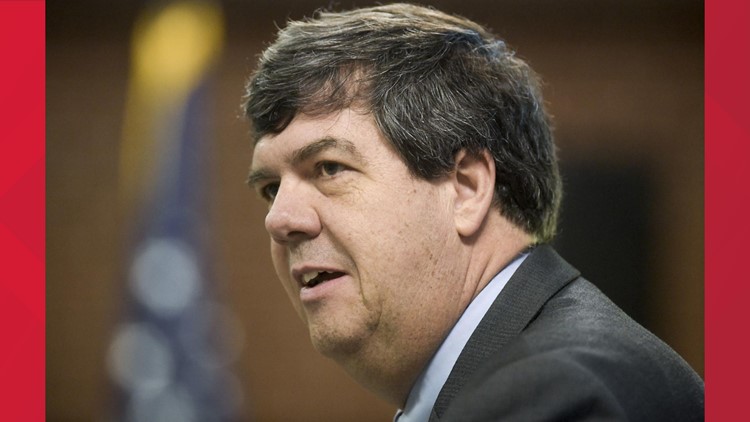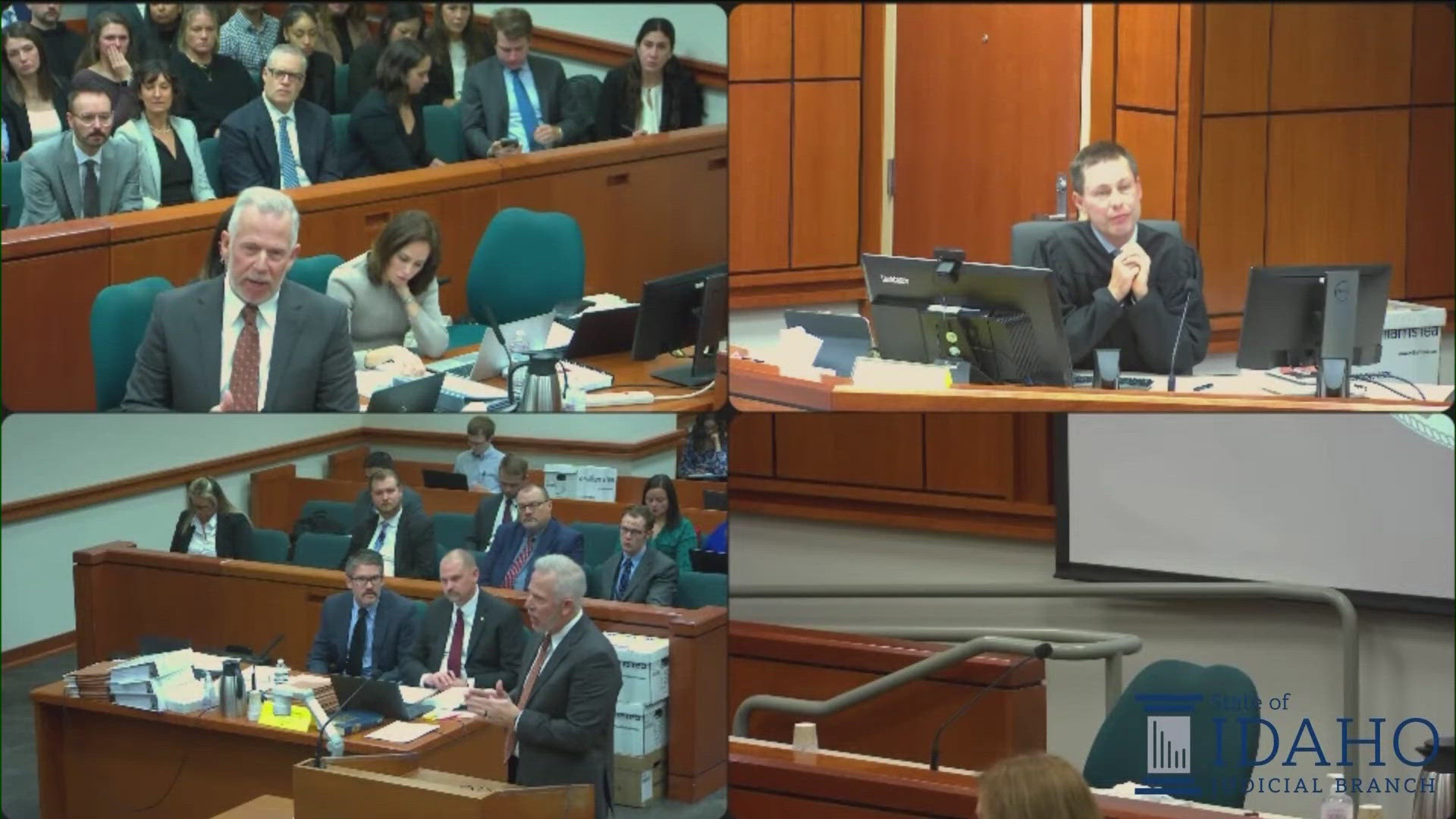BOISE, Idaho — Senate Tax Chairman Jim Rice, R-Caldwell, is working on major legislation to raise Idaho’s 6% sales tax to 7%, and to use the money to increase funding for schools — while phasing out school districts’ ability to pass local property tax overrides known as supplemental levies.
“We need to move off of supplemental levies for the school funding,” Rice told the Idaho Press. “That will help with the property tax situation.”
This year, 92 of Idaho’s 115 school districts are collecting voter-approved supplemental property tax levies, totaling $214 million, according to Idaho Education News.
That’s how much property tax relief Rice’s proposal would initially provide statewide, while also increasing funding for schools and setting aside roughly another $30 million toward grocery tax relief.
“It kills two birds with one stone,” said Rice, who hopes to have a draft of the bill to unveil by the end of the month.
It’s not enough to solve the entire property-tax problem in Idaho, Rice said, but it’d be “one piece” — and a big one.
MORE CAPITOL WATCH: Idaho state agencies outline plans for budget cuts
In a special session in 2006, the Idaho Legislature, under then-Gov. Jim Risch, eliminated the main local property tax levy that used to fund public school operations, while raising the sales tax from 5% to 6%.
The additional sales tax revenue, however, wasn’t dedicated to schools; schools ended up never fully recouping what they’d lost in the shift.
That move, during an earlier Idaho property tax revolt, helped set up today’s situation, where an increasing number of Idaho school districts every year have turned to local voters for supplemental levies to help fund basic operations that the state isn’t funding. Idaho’s per-pupil state funding for schools is among the lowest in the nation.
“I wasn’t in the Legislature then,” Rice said. “I don’t know that it created the problem, but it didn’t fully fix the problem that already existed.”
Rice has been meeting with other lawmakers in both the House and Senate about his proposal, and also airing it with stakeholders and citizens. He’s interested in everyone’s thoughts on it, he said.
“Citizen input is critical to sound policy,” Rice said. “We have to be able to have the discussions of the proposed solutions and the problems that we’re having, so that we don’t create other problems.”
He added, “The governor’s office is generally aware of what I’m working on.”
In the Idaho Legislature, tax legislation must start in the House.
“I think I likely could get it printed and have a hearing,” Rice said, though he added that he’s not asked for commitments along those lines from House Tax Chairman Gary Collins, R-Nampa.
A one-cent sales tax increase would raise roughly $280 million in its first year, Rice said. His bill would direct $30 million of that to a special fund for grocery tax relief, to make sure Idahoans aren’t hit with extra taxes on groceries as a result of the change; the state’s current sales tax applies fully to groceries, something lawmakers have long debated changing.
No school district would lose funding under his plan, he said; some would gain. Those with big supplemental levies would see their levies phased out as the funds are replaced each year from the sales tax.
“We’re at the cusp of a property tax revolt,” Rice said. “It’s particularly difficult for those on a fixed income.”
Rice said he’s heard positive feedback so far about his proposal. “When I bring this up, people like the idea,” he said.
Local school board officials have not had a chance to review Sen. Jim Rice's proposal, but they have experienced issues with the supplemental levies that most Idaho school districts rely on.
“The supplemental levy is very difficult for our schools when you have two years' worth of funding,” Nampa School District spokeswoman Kathleen Tuck said Friday afternoon.
The Nampa School District’s most recent levy proposal, which would have brought in $12,075,000 a year for two years, failed last November. Now, the district will put a larger two-year supplemental levy of $12,895,000 per year on the ballot in March.
Allison Westfall, spokeswoman for the Kuna and Caldwell school districts, said she's excited to see Rice's proposal.
Tuck cited the tax burden placed on local property owners as a driving force in the search for new ways to fund public schools.
Echoing these concerns, a resolution passed by the Idaho School Boards Association for the 2020 legislative session supported the researching and drafting of new legislation to reform “property taxes for school purposes.” The resolution was passed with the concern that “changes to Idaho’s property tax system in 2006 … put schools and districts in a tough position of asking their taxpayers for levies in order to provide the programs and educational services their communities expect.”
Both Tuck and Westfall were unsure whether the school districts they represent will support Rice's specific proposal.
The same was true for the West Ada School District.
“It needs analysis on the impact before I could even make a determination on whether to support it,” said new West Ada school board member Amy Johnson.
—Blake Jones, Kuna Melba News
Betsy Z. Russell is the Boise bureau chief and state capitol reporter for the Idaho Press and Adams Publishing Group. Follow her on Twitter at @BetsyZRussell.
More from our partner Idaho Press: Boise considering redeveloping affordable housing on Capitol to add more units
Watch more Idaho politics:
See all of our latest political coverage in our YouTube playlist:



